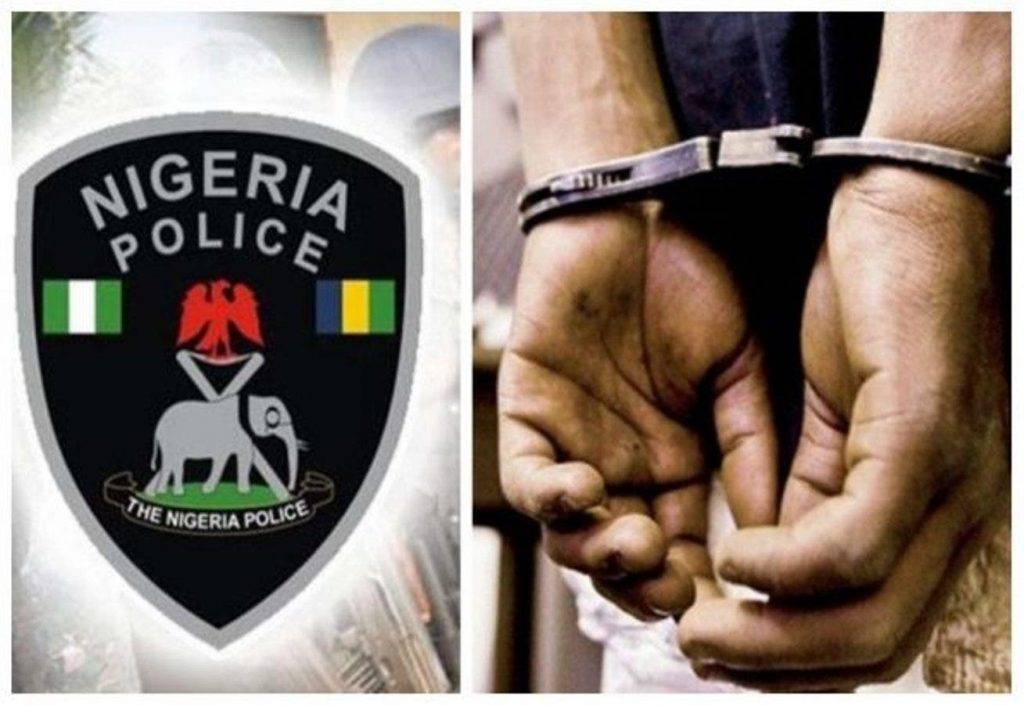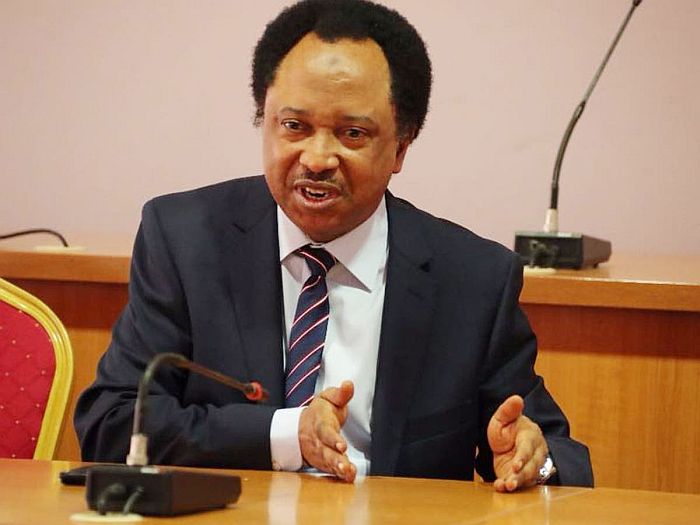List Of High Profile Corruption Cases Nigerians Expect In 2021
The Supreme Court of Nigeria in 2020 overturned the convictions in some high-profile corruption cases involving politically exposed persons and directed the prosecuting agencies to conduct fresh trials.
Other courts during the year also adjourned the trial of several other corruption cases to the next year.
The convicts who got out of jail and now face fresh trials include a serving senator, Uzor Kalu (APC-Abia), and a former spokesperson to the Peoples Democratic Party (PDP), Olisa Metuh.
Following their release, the Economic and Financial Crimes Commission (EFCC) vowed to immediately begin fresh retrial of the cases. The agency did not do this in 2020 but the cases are expected to be reopened in 2021.
Meanwhile, many other corruption cases involving prominent Nigerians are going on in courts across the country.
They include those involving a former Chairman of the Pension Reform Task Force Team (PRTFT), Abdulrasheed Maina; a former Attorney-General of the Federation and Minister of Justice, Mohammed Adoke; and a former media aide to former President Goodluck Jonathan, Doyin Okupe.
In this report, this newspaper chronicles the long road to conviction in the overturned cases and the circumstances surrounding the order for their retrial.
We also highlight some of the other ongoing trials of prominent individuals for alleged corruption, and top cases expected to either restart or continue in 2021.
Uzor Kalu
Mr Kalu represents Abia North and is the current Senate chief whip. He was convicted for stealing N7.1 billion when he was Abia State governor between 1999 and 2007.
The EFCC had in 2018 re-arraigned him alongside Ude Udeogu, a former director of finance and accounts with the state government, and Mr Kalu’s company, Slok Nigeria Limited, on a 39-count charge before the Federal High Court in Lagos.
On May 8, the Supreme Court in a unanimous decision of its seven-member panel led by Justice Amina Augie, nullified Mr Kalu’s conviction and ordered a retrial.
The apex court did not look at the merit of the case in ordering the retrial.
It only said Justice Mohammed Idris of the Federal High Court Lagos, lacked jurisdiction to conduct the trial because he had been elevated to the Court of Appeal as of December 5, 2019 when he convicted Mr Kalu.
The EFCC reacted to the court verdict by vowing to begin preparation to re-arraign the accused persons, according to a statement signed by its then spokesperson, Dele Oyewale.
Five months later in October, Wilson Uwujaren, who had then just returned as the spokesperson of the EFCC, told sources of the moves by the commission to reopen the case.
He said the case had been moved to the Federal High Court in Abuja but EFCC requested for it to be returned to the Lagos division of the court where the case began.
“That is why progress has not been done (achieved).”
Mr Kalu has since his release from prison resumed full legislative duties at the Senate, while his case is yet to be reopened.
Some civil society organisations, including Transparency International Nigeria; lawyers and activists had called on the EFCC to act swiftly in line with its initial statement to get the former governor and his fellow accused persons back in the dock.

Olisa Metuh
The EFCC arraigned Mr Metuh alongside his company, Destra Investment, on an amended seven-count charge of alleged diversion of N400 million received from the Office of the National Security Adviser, under Sambo Dasuki.
He was arrested in 2016 at his Abuja residence by operatives of the EFCC and arraigned in court but pleaded not guilty to the charge.
On February 25, Justice Abang of the Federal High Court in Abuja found him guilty of the charges and sentenced him to seven years imprisonment.
Dissatisfied with the decision of the court, Mr Metuh asked the appellate court to set aside his conviction, alleging among others that the trial judge was biased and failed to accord him a fair hearing.
Delivering judgment on the appeal on December 17, Justice Stephen Adah, who led a panel of three justices of the Court of Appeal, agreed with the appellant that the trial judge was biased and nullified the judgement.
The appeal court ordered a retrial of the substantive case.
In its reaction, the EFCC said it would approach the Supreme Court to set aside the appellate court’s judgement it said had failed to examine the merit of the judgement of Justice Abang.

Doyin Okupe
Mr Okupe, a former spokesperson to former President Goodluck Jonathan, is also standing trial for receiving funds from the embattled ex-National Security Adviser, Mr Dasuki.
The EFCC is prosecuting him on a 59-count charge before Justice Ijeoma Ojukwu of the Federal High Court, Abuja, alongside two companies belonging to him – Value Trust Investments and Abrahams Telecoms – for allegedly laundering N702 million.
Mr Okupe, a chieftain of the opposition Party PDP, was arrested by the agency on December 12, 2018, but later released on administrative bail. He was rearrested on January 11, 2019 but again released on bail.
Mr Okupe, who had then just survived the coronavirus infection, was permitted by the court to travel to the United Kingdom for medical treatment.
His counsel, Akinlabi Akinbade, promised to have him in court on or before January 21, 2021.

Abdulrasheed Maina
Mr Maina is a notorious fugitive who had at different times absconded from prosecution for allegedly leading a massive pension fraud scheme amounting to more than N100 billion.
The case was brought against him by the EFCC.
The former pension boss initially fled Nigeria in 2013 after the government of former President Jonathan launched an investigation into the pension scheme that Mr Maina ironically had been drafted to sanitise in 2010. He was reported to have returned quietly to the country in 2017.
However, sources exclusively reported in October 2017 how President Muhammadu Buhari’s government secretly reinstated and promoted Mr Maina. Amid a nationwide outrage ignited by the disclosure, President Buhari ordered the immediate sack of Mr Maina.
A few months later, Mr Maina was arrested on September 30, 2019, alongside his son, Faisal, in Abuja, by the State Security Service (SSS). He finally had his day in court in October last year to face a 12-count charge.
He pleaded not guilty to the charge and was granted bail by Justice Okon Abang of the Federal High Court in Abuja on November 25, 2019 with a bond of N1 billion on a surety endorsed by a serving senator, Ali Ndume (APC-Borno South).
But the ex-pension boss jumped bail and again went on the run to Niger Republic. He had not been appearing in court since September 29 this year, with his counsel, Francis Oronsaye, claiming his client was ill.
Justice Abang later issued a bench warrant on Mr Maina and on November 23 ordered his surety, Mr Ndume, to be remanded at the Kuje Correctional Centre in Abuja, pending the production of Mr Maina in court.
On December 1, Mr Maina was re-arrested in Niger Republic and extradited to Nigeria by a joint operative of the intelligence service in Niger and anti-corruption agents in Nigeria.
At his resumed trial, Mr Maina theatrically collapsed in court on December 10. The court had dismissed his no case submission which he made after the EFCC closed its case. The agency had called nine witnesses in the case.
After dismissing the no-case submission, the court adjourned the trial to January 26 and 27, 2021 for Mr Maina to begin his defence.

Mohammed Adoke

The EFCC is prosecuting Mr Adoke for alleged involvement in the controversial $1.1 Malabu oil deal. He was charged alongside a controversial businessman, Aliyu Abubakar, and others before various courts in the country.
These include a seven-count charge before Justice Nyako of the Federal High Court in Abuja; with Mr Adoke facing six of the counts and Mr Abubakar one. The charges were later amended to 14-count, with both accused now facing seven each.
Similarly, the two defendants are facing a 48-count charge before Inyang Ekwo of the Federal High Court in Abuja.
The EFCC had in July denied dropping the charges against Mr Adoke. This newspaper, however, established that the former minister’s name was removed and charges were dropped in one of the three cases filed against him.
The duo are also standing trial before Justice Idris Kutigi of the FCT High Court on a 12-count charge. The charges were later amended to 42.
The charges include money laundering, denying Nigeria taxes, and an alleged N300 million bribe.
In the charge before the FCT High Court, the EFCC accused Mr Adoke of accepting gratification “to facilitate and negotiate the OPL 245 resolution agreement with Shell, Eni, and their Nigerian subsidiaries.”
Messrs Adoke and Abubakar were granted bail of N50 million each on the same conditions at both the FCT High Court Gwagwalada and the Federal High Court in Abuja.
Sources reported how almost half of the $1.1 billion paid by Shell and Eni in a controversial OPL 245 deal negotiated by Mr Adoke and some other officials of the Goodluck Jonathan administration ended in private accounts controlled by Mr Abubakar.
The oil multinationals paid the money through the Nigerian government to Malabu, a company then controlled by Dan Etete, a former petroleum minister who the EFCC said is on the run.
Mr Adoke has always denied any wrongdoing. He said he acted professionally on the instructions of former President Jonathan.
On December 11, Justice Ekwo permitted Mr Adoke to travel for a medical checkup in the United Arab Emirate (UAE), where he had initially gone on a self-imposed exile outside Nigeria in 2015.
He had been arrested in Dubai by Interpol at the prompting of the EFCC but released to travel home to Nigeria.
But upon his arrival in Nigeria, he was arrested at the Abuja airport and handed over to the EFCC on December 19 last year.








